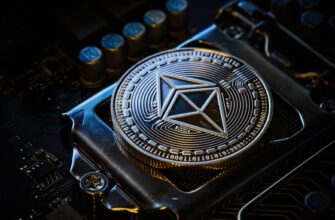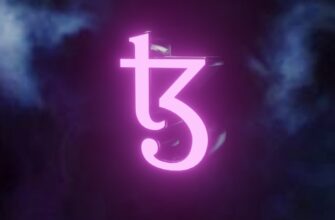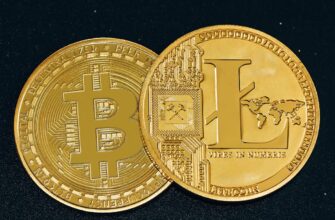## Introduction: Demystifying Crypto Jargon
Navigating the cryptocurrency landscape can feel like deciphering a foreign language. With over 15,000 digital assets and complex blockchain technology, newcomers and seasoned investors alike need reliable references. A comprehensive **cryptocurrency glossary PDF** serves as your essential decoder ring, consolidating critical terminology into a portable, accessible format. This guide explores must-know terms, practical applications for your glossary PDF, and where to find trustworthy resources – empowering you to confidently engage with the digital economy.
## Essential Cryptocurrency Terms Defined
Master these foundational concepts found in any quality cryptocurrency glossary PDF:
* **Blockchain**: A decentralized digital ledger recording transactions across multiple computers, ensuring transparency and security.
* **Altcoin**: Any cryptocurrency alternative to Bitcoin (e.g., Ethereum, Cardano, Solana).
* **DeFi (Decentralized Finance)**: Financial services (lending, trading) operating without traditional intermediaries like banks.
* **NFT (Non-Fungible Token)**: Unique digital assets representing ownership of art, collectibles, or real-world items on the blockchain.
* **Staking**: Earning rewards by locking crypto holdings to support network operations like transaction validation.
* **Gas Fees**: Transaction processing costs on networks like Ethereum, paid to miners/validators.
* **Cold Wallet**: Offline storage (hardware devices) for enhanced cryptocurrency security.
* **Smart Contract**: Self-executing agreements with terms written into code on a blockchain.
* **Mining**: The energy-intensive process of validating transactions and creating new coins through computational power.
* **Whale**: An individual or entity holding large amounts of cryptocurrency, capable of influencing market prices.
## Why a Cryptocurrency Glossary PDF is Indispensable
A well-structured PDF glossary offers unique advantages for crypto enthusiasts:
1. **Offline Accessibility**: Reference critical definitions during travel, meetings, or unstable internet without relying on web searches.
2. **Rapid Knowledge Building**: Accelerate learning with alphabetized terms and concise explanations in one centralized document.
3. **Professional Utility**: Enhance credibility during client presentations, investment discussions, or team trainings using a standardized resource.
4. **Future-Proof Learning**: Archive evolving terminology snapshots as blockchain technology advances.
5. **Portable Study Aid**: Complement online courses, whitepapers, and market analysis with tangible study material.
## How to Maximize Your Cryptocurrency Glossary PDF
Transform your PDF into an active learning tool with these strategies:
* **Annotate Electronically**: Use PDF editors to highlight terms you encounter frequently and add personal notes.
* **Create Flashcards**: Export terms to apps like Anki for spaced repetition memorization.
* **Cross-Reference Whitepapers**: When reading technical documents, keep your glossary open to decode complex passages.
* **Teach Others**: Use definitions to explain concepts to peers, reinforcing your understanding.
* **Track Emerging Terms**: Add new entries quarterly as the industry evolves (e.g., “zk-Rollups,” “MEV”).
## Where to Find Reliable Cryptocurrency Glossary PDFs
Source trustworthy glossaries from these vetted providers:
– **Educational Platforms**: Coinbase Learn, Binance Academy, and Coursera offer free, updated glossaries.
– **Blockchain Foundations**: Ethereum.org and Bitcoin.org provide project-specific terminology guides.
– **Regulatory Bodies**: Publications from the SEC or FCA include compliance-focused definitions.
– **Crypto Media**: Coindesk, Cointelegraph, and Decrypt release annual industry reports with glossaries.
– **University Resources**: MIT OpenCourseWare and Stanford Blockchain Courses share academic glossaries.
Always verify the publication date and author credentials to ensure information relevance.
## Frequently Asked Questions
### Q1: What makes a cryptocurrency glossary PDF better than online glossaries?
A: PDFs provide offline access, avoid distracting ads, offer consistent formatting for quick scanning, and serve as archival references unaffected by website changes.
### Q2: How often should I update my cryptocurrency glossary PDF?
A: Check for updates quarterly. Major industry shifts (like Ethereum’s Merge) or regulatory changes often introduce new terminology requiring glossary revisions.
### Q3: Can I trust free cryptocurrency glossary PDFs?
A: Yes, if sourced from reputable institutions (exchanges, universities, or established media). Avoid glossaries promoting specific coins or lacking publication dates. Cross-check ambiguous terms with multiple sources.
### Q4: What terms should every beginner-focused glossary include?
A: Essential starter terms: Blockchain, Bitcoin, Wallet, Exchange, Private Key, Public Key, Altcoin, Stablecoin, Fiat, DeFi, NFT, and Market Cap. Advanced glossaries add concepts like Oracles, Sharding, and Zero-Knowledge Proofs.
### Q5: How can I customize a cryptocurrency glossary PDF for trading?
A: Add sections on technical analysis (TA) terms like Resistance/Support Levels, RSI, Candlestick Patterns, and Volume Indicators. Include exchange-specific terminology from platforms you use frequently.
## Conclusion: Your Crypto Literacy Foundation
A meticulously crafted **cryptocurrency glossary PDF** transforms complex jargon into actionable knowledge. By bookmarking key definitions, leveraging offline access, and regularly updating your resource, you build confidence in navigating blockchain projects, market analysis, and investment decisions. Download a reputable glossary today to turn cryptographic puzzles into strategic opportunities – your essential key to mastering the digital asset revolution.








